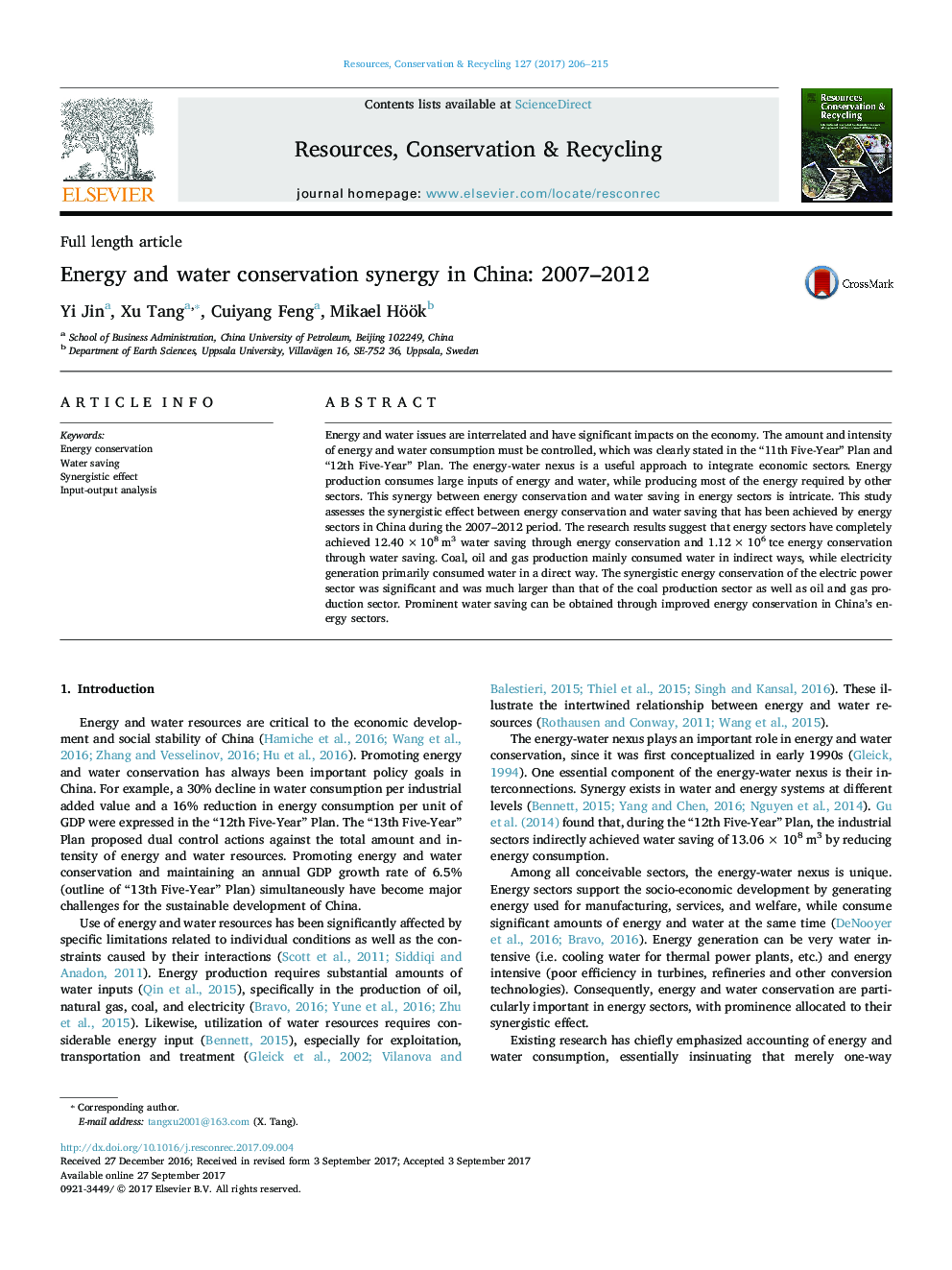| Article ID | Journal | Published Year | Pages | File Type |
|---|---|---|---|---|
| 5118601 | Resources, Conservation and Recycling | 2017 | 10 Pages |
â¢Synergies of energy and water conservation have been evaluated in energy sectors.â¢Energy types were differentiated when assessing energy and water saving synergy.â¢Prominent water saving could be obtained through energy conservation.â¢The synergistic energy-conservation effect of the electric power sector was significant.
Energy and water issues are interrelated and have significant impacts on the economy. The amount and intensity of energy and water consumption must be controlled, which was clearly stated in the “11th Five-Year” Plan and “12th Five-Year” Plan. The energy-water nexus is a useful approach to integrate economic sectors. Energy production consumes large inputs of energy and water, while producing most of the energy required by other sectors. This synergy between energy conservation and water saving in energy sectors is intricate. This study assesses the synergistic effect between energy conservation and water saving that has been achieved by energy sectors in China during the 2007-2012 period. The research results suggest that energy sectors have completely achieved 12.40Â ÃÂ 108Â m3 water saving through energy conservation and 1.12Â ÃÂ 106Â tce energy conservation through water saving. Coal, oil and gas production mainly consumed water in indirect ways, while electricity generation primarily consumed water in a direct way. The synergistic energy conservation of the electric power sector was significant and was much larger than that of the coal production sector as well as oil and gas production sector. Prominent water saving can be obtained through improved energy conservation in China's energy sectors.
